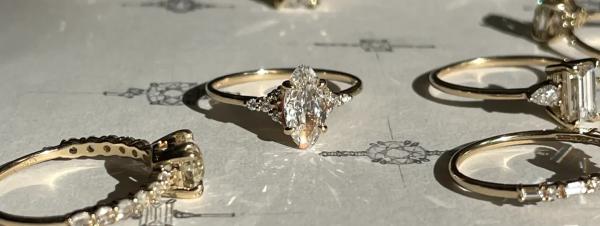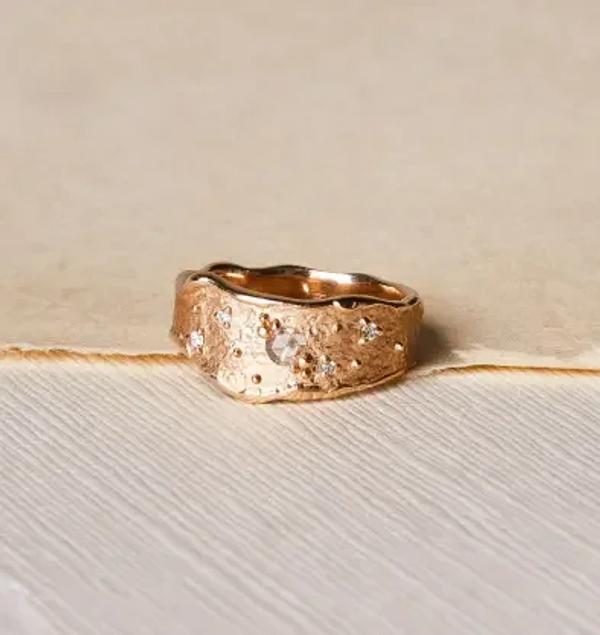
Diamonds
Conflict-Free Diamonds
At bluboho, every diamond we source is conflict-free strictly aligned with the Kimberley Process certification. We partner closely with experienced suppliers to ensure each gem comes from a place where workers are treated fairly and responsibly.
Recycled & Antique Diamonds
Looking for something uniquely meaningful? We offer recycled and antique diamonds that have been gracefully reclaimed, re-cut and polished, ready to shine again in a new engagement or fine jewelry piece. These ethically-sourced gems carry a story, a history—and a premium for their craftsmanship and rarity.
Unexpected & Distinct Diamond Styles
Not just white brilliant-cuts. Explore our collection of rose-cut white diamonds, black diamonds and grey diamonds—beautiful alternatives that deliver character and elegance for a non-traditional engagement piece.

Understanding the Four Cs
When choosing an engagement ring diamond, many begin by evaluating the “Four Cs”: Cut, Clarity, Colour, and Carat. While at bluboho we believe in beauty, durability and emotional resonance above all, it’s still helpful to know these basics.
Cut
The “cut” of a diamond refers to how the rough gem has been shaped and faceted to maximize brilliance. At bluboho we carry styles including:
Round Brilliant: the classic sparkling choice
Rose Cut: soft, romantic and candle-lit in appearance
Marquise: elongated, elegant and flattering
Baguette: clean, rectangular and modern





Few diamonds form without any inclusions or internal characteristics—less than 1%. Rather than call them “imperfections,” we embrace these natural traits because they add character and uniqueness to each stone.
I1, I2, I3 (“Included”): Inclusions are obvious, may be visible to the naked eye
SI1, SI2 (“Slightly Included”): Inclusions visible at 10× magnification, often “eye-clean” and excellent value
VS1, VS2 (“Very Slightly Included”): Minor inclusions, typically not visible without magnification
VVS1, VVS2 (“Very, Very Slightly Included”): Extremely rare, minimal inclusions visible only under magnification
Most of the stones we select fall into that “sweet spot” where inclusions are minor, the diamond sparkles beautifully, and value remains strong.
Colour
White diamonds are graded from D (colourless) to Z (light yellow or brown). Please note this scale applies only to white diamonds—black, grey or champagne-diamonds follow different systems.
Carat
Carat weight refers to the gem’s weight, not necessarily its diameter. Because cut and setting can affect footprint, carat is a guide—rather than guarantee—of size.


Why Choose bluboho for Your Engagement Diamond?
Ethical sourcing: All diamonds are conflict-free and comply with the Kimberley Process.
Sustainable options: We provide recycled and antique diamonds that carry stories and reduce impact.
Distinctive styles: From rose-cut to black and grey diamonds, our collection goes beyond traditional.
Educated decision-making: We help you understand the Four Cs so you can choose with confidence.
Craftsmanship & trust: Based in Canada, we bring decades of expertise in fine jewelry, and we back your purchase with comprehensive support.
Book an Appointment
Interested in seeing our diamond collection in person or virtually? Schedule an engagement ring consultation today and let us guide you through our ethical diamond offerings.
